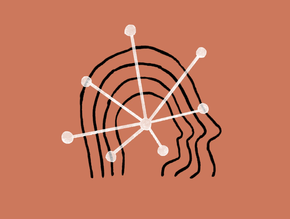Panasonic develop AI technology to combat false detection

Panasonic R&D Company of America and Panasonic Holdings Corporation have developed technology that increases the reliability of its AI model by detecting objects that it has not learned and that are essentially unrecognisable to it as "unknown objects."
The company has developed a new flow-based generative AI model “FlowEneDet” that aims to enhance reliability simply by extending a pre-trained segmentation model. Panasonic has also said that it is committed to continuing to accelerate the implementation of AI in society, as well as promoting research and development (R&D) of AI technology that will ultimately help its customers.
With great power comes great responsible AI
AI has a history of false detection and has led to researchers and developers seeking to work to improve models. In particular, in July 2023, a published study suggested that AI GPT detectors were misclassifying essays written by people as being written by AI, which ultimately caused concerns about bias and academic fairness.
With greater technology working to increase the reliability of AI, it will be interesting to see how developments such as these will contribute to greater responsible AI within businesses.
AI that is equal parts responsible and efficient has already been hailed as revolutionary for businesses. This includes initiatives like the Frontier Model Forum which aims to help advance research into AI safety, identity safety best practices and share knowledge to enhance responsible AI development and leverage AI to address social challenges.
Also considered is how AI can be perfected to suit the specific needs of a business. Panasonic’s flow-based detector has an energy-based input that is less complicated, as the model correctly recognises only objects that have already been trained and are inherently recognizable, by predicting "how reliable" the recognition results of the AI model.
The company proposed the flow-based generative model, FlowEneDet, as a network that estimates how confident an AI model is in its recognition results. It is a flow-based generative mode that can express complex distributions as a composition of “inversely transformable functions,” making it possible to accurately model the distribution of training data.
This modelling makes it possible to separate “objects that the AI model knows” and “unknown objects.”
According to Panasonic, FlowEneDet is a model that can handle low-dimensional free energy in the energy-based model, so it has a low-complexity architecture, and it can handle unknown objects. It can also handle in-distribution misclassification without significantly increasing training and evaluation costs simultaneously.
******
For more insights into the world of Technology - check out the latest edition of AI Magazine and be sure to follow us on LinkedIn & Twitter.
Other magazines that may be of interest - Technology Magazine | Cyber Magazine
Please also check out our upcoming event - Sustainability LIVE in London on September 6-7 2023.
******
BizClik is a global provider of B2B digital media platforms that cover Executive Communities for CEOs, CFOs, CMOs, Sustainability Leaders, Procurement & Supply Chain Leaders, Technology & AI Leaders, Cyber Leaders, FinTech & InsurTech Leaders as well as covering industries such as Manufacturing, Mining, Energy, EV, Construction, Healthcare + Food & Drink.
BizClik – based in London, Dubai, and New York – offers services such as Content Creation, Advertising & Sponsorship Solutions, Webinars & Events.






